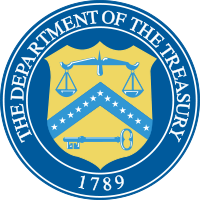US, Iran & Russia Criticize UN Report
Iran, the United States and Russia criticized a new U.N. report on implementation of the nuclear deal codified in Security Council Resolution 2231. Secretary General Ban Ki-moon, in his first bi-annual report on the deal, commended Iran and the world’s major powers for implementing their commitments. He, however, highlighted Iran’s complaint that it has yet to fully benefit from the lifting of sanctions due to U.S. policies.
Iranian Leaders React to Turkey Coup
Iranian leaders expressed strong support for Turkey’s elected government and President Recep Tayyip Erdogan following a failed coup by military officers. “These people should understand that the way of resolving the problems is democracy and respecting the nation’s vote,” said President Hassan Rouhani on July 17.
US Officials on Nuclear Deal Anniversary
On the one year anniversary of the nuclear deal, U.S. officials praised the agreement but acknowledged that the United States and Iran still strongly disagree on regional issues, ballistic missiles, and human rights. “We still have serious differences with Iran, but the United States, our partners, and the world are more secure because of the JCPOA,” President Barack Obama said in a statement. The Joint Comprehensive Plan of Action (JCPOA), which went into its implementation phase in January, rolled back key elements of Tehran’s nuclear program in exchange for sanctions relief.
Will the Iran Nuclear Deal Survive?
Last month, Boeing signed a landmark agreement with Iran to sell or lease a hundred and nine passenger jets. The mega-deal, worth at least twenty billion dollars, would be the largest sale of American goods to the Islamic Republic since the seizure of the U.S. Embassy, shortly after the 1979 Revolution. ...
Will the Iran nuclear deal survive? https://t.co/y6ex9lXtJq pic.twitter.com/MJzxd2waGg
Congress Takes Action on Iran
In the week marking the one-year anniversary of the nuclear deal, Congress prepared to discuss three bills that would impose new sanctions on Iran – all of which President Obama has promised to veto if they are passed. The bills include:
Poll 4: Domestic Politics and Issues
President Hassan Rouhani is still the favored candidate for the 2017 presidential election, but his predecessor, Mahmoud Ahmadinejad, has made significant gains in public opinion, according to a new University of Maryland survey. While large majorities said they had a favorable view of Rouhani’s efforts to improve national security and international relations, Iranians had a more mixed view of his economic policies.
Poll 3: Views on Foreign Policy, Regional Conflicts
A new University of Maryland poll found that a majority of Iranians continued to support sending their own military personnel to Syria. Half of Iranians said their country should increase support for Bashar al Assad’s government. About two thirds of respondents said Iran should seek to increase the role it plays in the region.
Iranians indicated mixed views of Turkey, China and Russia. They had largely positive views of Iraq, the Lebanese militia and political party Hezbollah, Syria and Germany. They had overwhelmingly negative views of ISIS and Saudi Arabia.
Poll 2: Iranian Views of the US
One year after the nuclear deal was reached, Iranians’ views of the United States have not improved, according to a new poll by the University of Maryland. As of June 2016, 73 percent of Iranians had a negative view of the United States. About the same percentage thought Washington was actively preventing other countries from strengthening economic ties to Iran.
Iranian Leaders on Nuclear Deal Anniversary
On the eve of the one year anniversary of the nuclear deal, President Hassan Rouhani warned that Iran could quickly restore its nuclear program if the world’s major powers violate the agreement. “If the P5+1 wriggles out of its commitments, we are completely ready and capable to reach our desired point in a short time span,” he said during a cabinet meeting. The Joint Comprehensive Plan of Action (JCPOA), which went into its implementation phase in January, rolled back key elements of Tehran’s nuclear program in exchange for sanctions relief.

